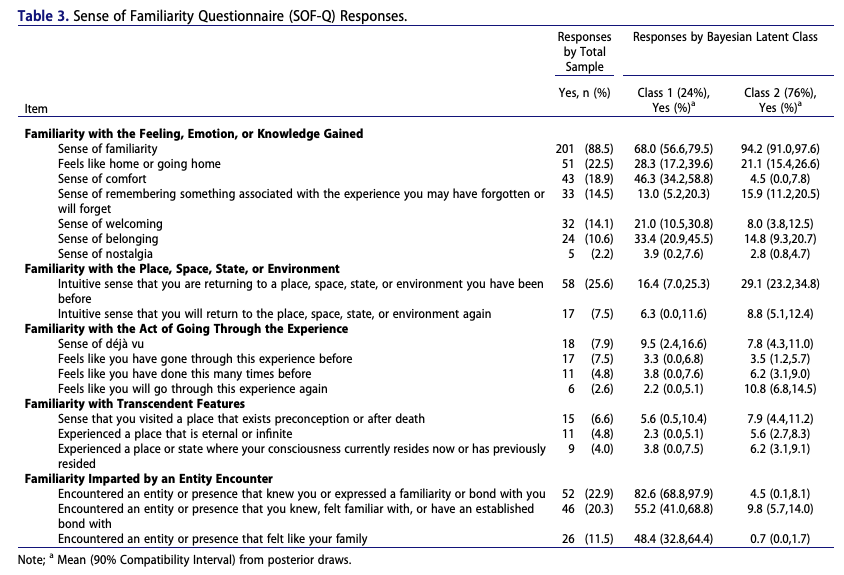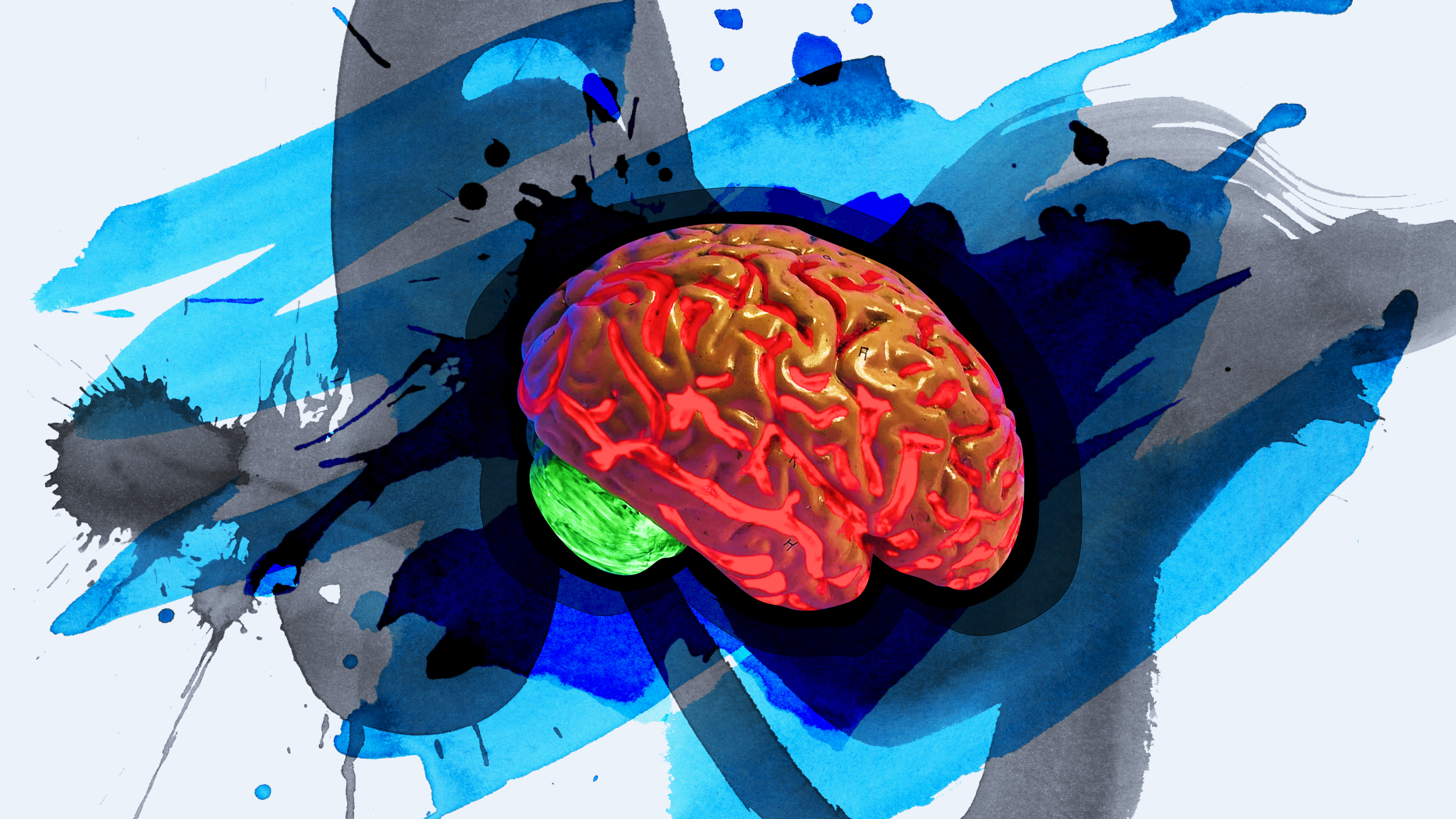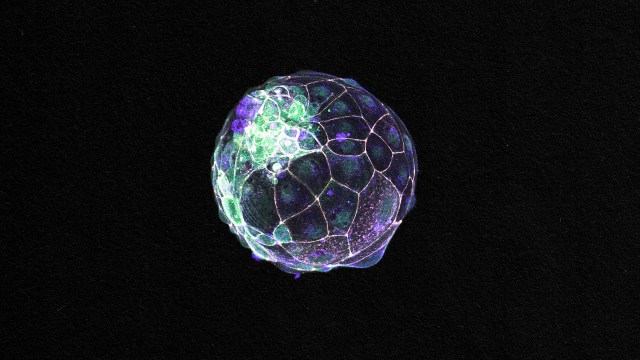“I’ve been here before”: DMT study explores a strange memory phenomenon

- DMT, the world’s most powerful psychedelic drug, can induce a sense of profound familiarity in users, making them feel as if they have entered an alternate reality they have visited before.
- A study analyzing online reports found this sense of familiarity was not linked to prior psychedelic use.
- The phenomenon is puzzling, in part because some people feel a strong sense of familiarity about places, things, or entities that are decidedly not a part of waking life.
If you take a psychedelic drug that can throttle your conscious perception into an otherworldly space where people often report encountering beings that are unlike anything on Earth, the last thing you would expect to feel is the sense that this all seems pretty familiar. But that’s precisely what some people report after taking the world’s strongest psychedelic: DMT.
“It felt like I had been reunited with everything, like I was complete again,” psychiatrist Dr. Chloe Sakal told Freethink in 2021 while describing a DMT experience she had as a participant in a study that examined the drug’s effects on the brain. “I no longer knew I was in an MRI scanner. My entire reality was very different — really colorful, really vibrant. And I couldn’t even remember that I was in a study. I was in a different dimension.”
Online reports from the r/DMT subreddit convey similarly intense and familiar experiences. “I was beyond time and matter and had no sense of identity whatsoever,” wrote one person. “I definitely felt this common thing like I was ‘at home,’ that I have already been there, and that I will go there again.”
A familiar trip
What explains the sense of familiarity in DMT experiences? The answer does not seem to be prior experience with psychedelic drugs. That’s one of the main takeaways from a study recently published in the Journal of Psychoactive Drugs that aimed to shed light on the types of familiarity people sometimes experience after taking the psychedelic.
The researchers — David W. Lawrence, Alex P. DiBattista, and Christopher Timmermann — pored through several thousand firsthand reports of DMT experiences posted to Reddit, finding 227 reports in which the author mentioned experiencing some form of familiarity. Fifty-six of those reports were written by people who said they had no prior experience with DMT, suggesting that previous DMT use is not necessary to experience a feeling of familiarity. Also, none of the reports referenced a previous psychedelic experience.
The 227 reports were sorted into a 19-item questionnaire that included five broad themes.

It’s worth noting that this data comes from a sample of self-reported stories posted to reddit over a ten-year period, and the researchers couldn’t verify the accuracy of each report. But it would have been difficult to collect this kind of data at scale in the lab — both due to regulations, which have only recently begun to relax, and practicality. The results still provide a fairly detailed overview of the types of familiar feelings people experience on DMT, with some of the notable findings including:
- Slightly more than 20% of participants said they encountered an entity with whom they perceived having some sort of prior relationship or bond. 11.5% said this entity felt like family.
- 22% said the experience felt like home or like going home.
- 25% said it felt like returning to a place, space, state, or environment that they had visited before.
The study also included excerpts from various reports in the sample:
“I’m being greeted by these beings, they’re not human but they’re oddly familiar. I know them as if they are family. They’re telling me how happy they are to see me, and that I’ve found this technology to communicate with them again.”
“Yesterday, I finally broke through and met a male and female entity in the place where we exist before birth, and after death. I was in complete shock about what happened, it seemed so real, and it honestly felt like a very familiar place. They were welcoming me and it felt like I was home.”
“The only time I’ve done DMT I had the same feeling of being ‘home.’ The feeling that you’ve been here before and it’s okay that I’m not here because I’ll be there again. It’s just such a reassuring and comforting feeling. I honestly don’t think I’ve ever felt that sure about anything. It’s like I just knew for a fact I’d be back again.
Familiarity without recollection
Familiarity is considered to be a key part of recognition memory, which is a component of long-term memory that is responsible for recognizing a previously encountered stimulus. The other part of recognition memory is recollection: the conscious retrieval of details about past experiences. The psychologist George Mandler once described the difference between the two in what’s known today as the butcher-on-the-bus phenomenon.
“Imagine taking a seat on a crowded bus. You look to your left and notice a man. Immediately, you are overcome with this sense that you’ve seen this man before, but you cannot remember who he is. This automatically elicited feeling is familiarity. While trying to remember who this man is, you begin retrieving specific details about your previous encounter. For example, you might remember that this man handed you a fine chop of meat in the grocery store. Or perhaps you remember him wearing an apron. This search process is recollection.”
What’s peculiar about DMT is that it can evoke something like déjà vu — that is, familiarity without recollection. In some cases, the drug may induce a feeling of familiarity even though that feeling might not be tied to an actual past experience at all, or at least not one that the experiencer can recollect.
Open questions
The authors of the recent study left open the possibility that “elements of the familiarity during a DMT experience may be nonveridical or veridical, or perhaps a combination of both.” (Veridical means truthful.) In the veridical scenario, it could be the case that DMT evokes a sense of familiarity because the affective quality of the experience “brushes up against” a real memory from your past, but you can’t recollect details of that memory because the psychedelic experience is so intense.
At least, that’s one hypothesis. Another centers on how the psychedelic causes more general changes to one’s state of consciousness. DMT causes the brain to enter a highly irregular and plastic state. As the drug’s effects wear off, the brain begins to return to its default state. It’s possible that this process of “returning to normal” evokes a sense of familiarity.
There’s also a simpler yet more extraordinary explanation for the sense of familiarity in the DMT experience: People feel it because they actually have encountered that otherworldly realm or entity before. In other words, DMT enables access to an objective reality beyond our own. There’s no hard evidence suggesting this is the case, but the hypothesis isn’t necessarily out of bounds for researchers who study DMT. One common argument in support of this explanation is the high degree of similarity in trip reports: Unlike other psychedelics, DMT tends to induce encounters with entities and landscapes that seem strikingly similar across many individual reports.
David Lawrence, lead author of the recent study and an assistant professor at the University of Toronto, told Big Think that the “objective reality” hypothesis would definitionally fall under the veridical paradigm, but that determining the cause of familiarity in the DMT experience was not the primary goal of the study. “Given the novelty of this work, our goal was not necessarily to assign any ‘priors’ (that is, prior probabilities) to the hypotheses but merely to present the hypotheses that could be possible: nonveridical, veridical, or mixed.”
Andrew Gallimore — a neurobiologist, pharmacologist, chemist, and author of the 2022 book Reality Switch Technologies — told Big Think that the “objective reality” hypothesis is “ripe for wild speculation” but remains “very much an open question.”
“One might argue that whatever neural mechanism is responsible for the feeling of [déjà vu] is somehow activated in the presence of DMT, even if there’s no actual memory trace,” Gallimore said. “Familiarity, after all, is a feeling. It’s a largely ineffable sense of having experienced something before. Since it seems many people experience this feeling in the absence of prior experience, a [skeptic] might argue that’s all that’s happening with DMT. I’m not swayed either way, which is why I leave the question open.”





